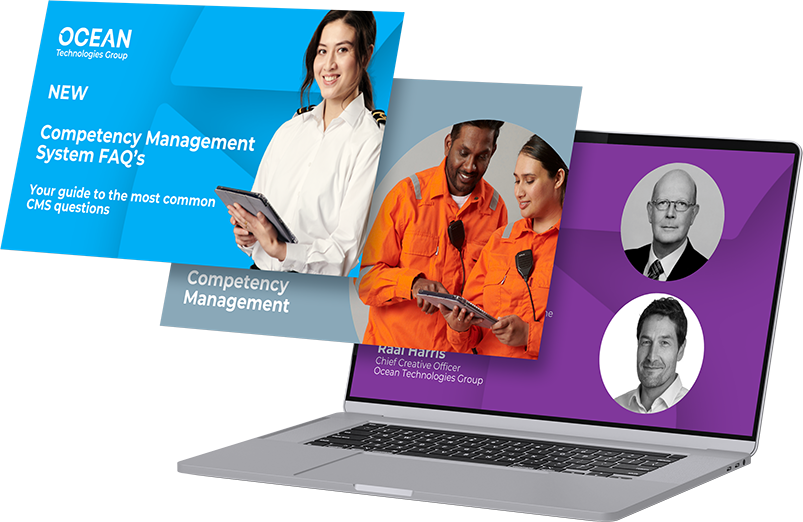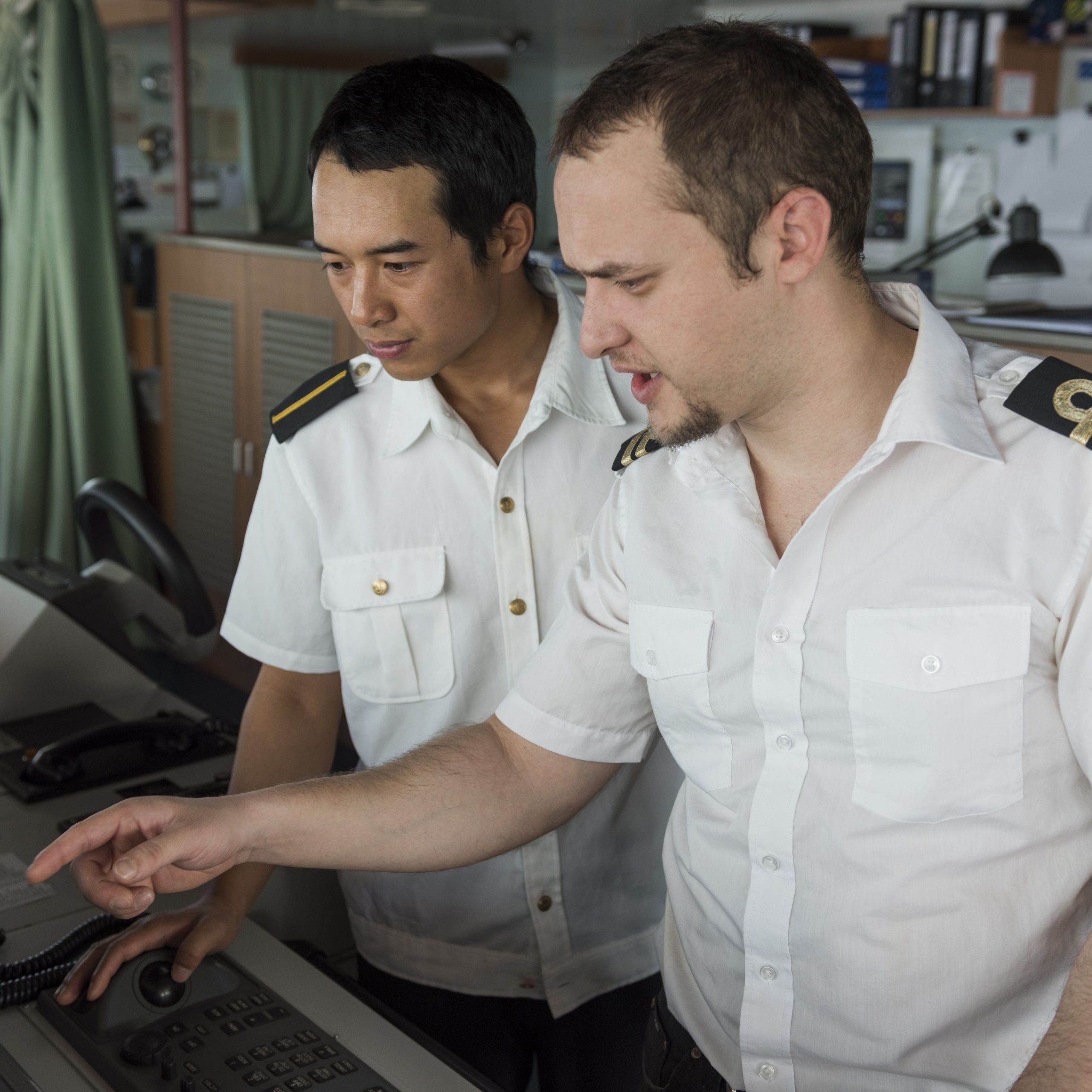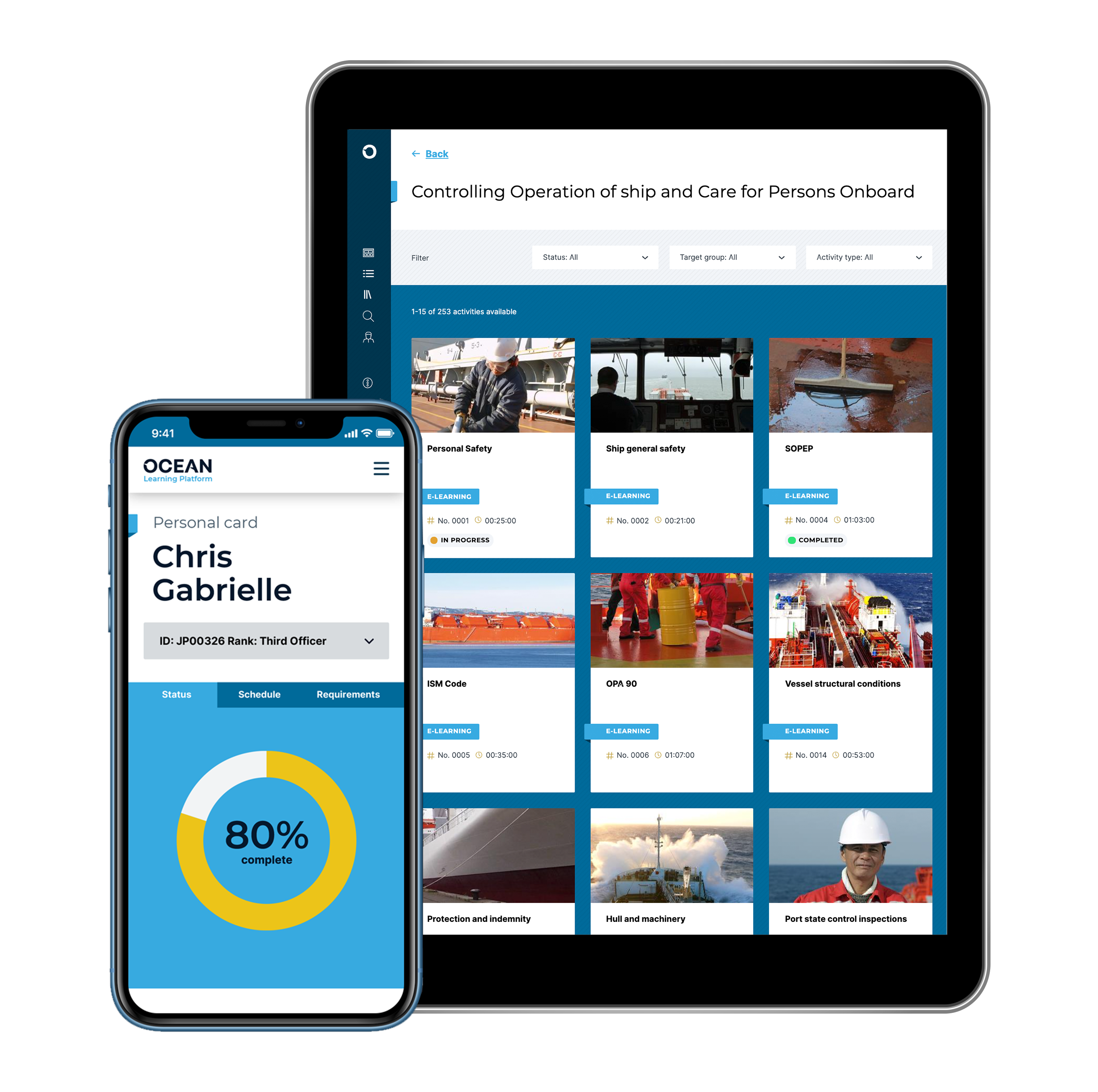Competency Management: evidence the success
Author: Sanjeev Soni Master Mariner & CMS Sales Director Ocean Technologies Group
Training certificates do not a guarantee that the crewperson is able to apply knowledge practically aboard ship. Competency Management Systems (CMS) are the trusted path to a better equipped and effective crew, and one that saves shipowners time and money; explains Sanjeev Soni, ex seafarer and global sales expert for CMS at Ocean Technologies Group.
The problems of the past and the present
The effective running of a ship requires a dizzying array of competencies, and by the time a seafarer qualifies as Captain, they have learned a great deal about human behaviour and best practice.
The culture of mentoring between senior seafarers and junior crew, a practice that once fuelled the maritime industry and the growth of its people, is no longer there. With crews being comprised of an increasing number of different nationalities, often speaking different native languages, a barrier is growing between senior and junior officers. This barrier has serious implications; a segregated crew will not communicate effectively, will not operate efficiently and will perform poorly in emergencies.
Commonly, crewing departments provide e-learning materials and develop training matrices of required learning for the mariners they manage, as to ensure the crew have access to, and a record of having completed, training on the processes and procedures common to their rank. This a highly efficient way of making sure mariners have the resources they need, both aboard ship. This approach on its own, relies heavily on the person or persons building the training matrix. Having worked at sea myself, and having seen the training matrices designed by others, I can testify that there is a wide gap between an effective training programme and a bloated training program where learners are required to watch hours of video, read through pages of documentation or attend days of courses on topics in which they may already be fully proficient.
Classroom training and certification also play a role in transferring knowledge and assessing comprehension in a controlled environment. Verifying that the skills are transferred to the jobs-to-be-done aboard ship, and that these skills are retained, requires continual assessment. As every seafarer knows that passing tests is not the same thing as a practical application of competence.
STCW is the bare minimum level that mariners are required to meet. While this certainly sets a baseline for training, the fact is that every ship is a prototype, and individual companies all have different standards that they set for themselves. Training certificates do not a guarantee that the crewperson is able to do the job competently. Skills and knowledge fade. A crewperson may have passed certification many months or years ago, and it is hard to know for certain whether they are still competent or whether skills might have eroded that could pose a risk to the operation of the vessel – and we haven’t even touched upon prickly topic of inconsistent awarding of certificates from one assessor or institution and another.
Having a reliable view of a mariner’s current skill level is something that is lacking for many of those managing crew. Having up-to-date training records proves that a crew have completed training, but it does not verify that the crew can do the job competently. Training and certification ensure compliance, but they don’t always ensure competence, which ensures safe and effective operation and can be the difference between a passed inspection and a detention.
For those of us who have spent time at sea and are managing crews and the careers of mariners, this list of problems is one we’re all aware of, and one we have been fighting with for many years.
There is another way
Competency Management System (CMS) goes a long way to providing the solution. A CMS is the tool shipping companies are using to assess and verify competency in the workplace on board ship. Providing a 360°, fully evidenced, view of the competencies of every crewperson in an organisation, a CMS is a reliable record that can be presented in an audit and can add weight in a tender as evidence of your operational excellence.
Where it identifies gaps in skills or knowledge it can be used as a tool to help to develop training programmes tailored to fill gaps in competencies of specific mariners.
Beyond being simply a record of competencies, a CMS acts as a catalyst for improving the working environment aboard ship. Moreover, the process of onboard assessment and evaluation increases the transfer of knowledge and strengthens relationships between senior and junior ranks.
CMS can be a daunting prospect for those just starting out on the journey, but it is well within the grasp of any organisation that is committed to continuous improvement. You can begin by simply identifying the key things you want to focus on and grow from there. As the old adage goes, “you can’t manage what you don’t measure.” By setting out a clear framework by which you can measure the competency of your crew based on the roles you need them to play, you can provide assurance to those within and outside your organisation that you are committed to safety and quality.
Interested in implementing a CMS?
Or read our next blog
“Driving mentoring and onboard communication with competency management“
Why choose Ocean CMS?
- We provide bespoke implementations, tailored to your business needs
- We offer a phased approach, allowing you to start small, and scale up as you see the need
- We are pioneers in competency management and have the experience to help navigate you from CMS implementation through to success.
All the content you need to get started today
To learn more about our Competency Management System
What are the key components of a Competency Management System?
How does Competency Management influence inspection performance?
Would you like to learn more about CMS?
We have created a section of our YouTube channel which is dedicated to helping people learn more about Competency Management. Featuring recordings of two full webinars plus bite-sized snippets covering FAQ’s such as:
- Why implement a CMS?
- What are the benefits of a digital CMS?
- Why is competency management becoming increasingly important?
- What are the key components of a CMS?
and many more.



